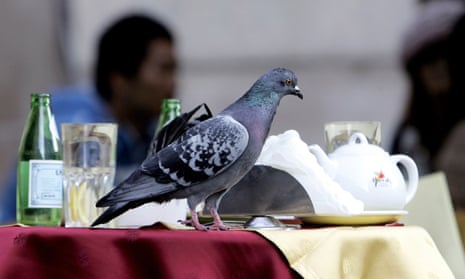There is growing evidence about the lifelong harm from air pollution. The air that we breathe as children can stunt our lung growth, potentially causing problems later in adult life. Air pollution breathed decades ago has been shown to shorten lives in the UK today. However, investigating these lifelong impacts is hampered by a lack of historic measurements.
Can the natural environment help us? Starting with lichens in the Jardin du Luxembourg, Paris in 1886, biomonitoring has helped to track air pollution. In a new twist, researchers in the US have constructed a 135-year history of pollution in America’s rust belt by studying soot in the feathers of museum bird specimens. Tests on 1,347 birds showed that air pollution between 1880 and 1920 was worse than we thought. The birds also revealed useful data for climate modellers. It appears that soot pollution started to decrease around 1910, earlier than thought; with dips in the great depression and a rise for the second world war.
It takes a lot of effort to fly, and bird lungs are therefore more efficient than the bellows arrangements that we share with other mammals and reptiles. The coalminer’s canary and the bird deaths in Rachel Carson’s Silent Spring show their vulnerability to pollution. In Spain, blood tests show that a poor urban diet is leaving house sparrows struggling to cope with modern air pollution, especially in the breeding season. Previously, pigeons in Milan displayed the effects of breathing exhaust from leaded petrol. Ominously, analysis of their droppings shows that Milan’s birds are still being affected by polluted air.

Comments (…)
Sign in or create your Guardian account to join the discussion